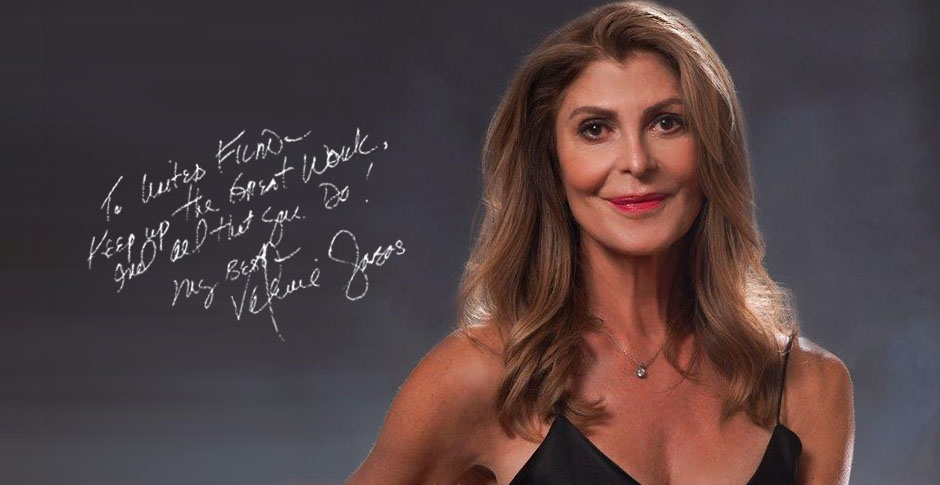Valerie Gobos: I am proud to say that I did not sleep my way to the top, so I did not get there quickly
Written by Eva Csölleová, Vítek FormánekAmerican producer Valerie Gobos has Greek roots but was born and educated in Chicago. She attended art school where she befriended painting, drawing, sculpture, design and photography. She also worked as singer, dancer, model and actress, slowly working her way up to become producer. We liked that she started from scratch and learnt all ropes from bottom of the ladder to the top which is the way Tomas Baťa started his shoe company century ago. We also appreciate that she uses fair play attitude rather than dirty tactics as seems to be a norm in film business. It is very difficult to get in touch with Hollywood people and make interview with them, but she was approachable from the first e-mail. Patience brought roses and although making interview took 10 months to complete, due to her workload, she was very open and helpful and nice to talk, no pre-fabricated PR bollocks.
You started as singer, actress, dancer and model. Does it mean that you tried every profession in showbiz, one at a time, but competition was too tough and success too moderate that after decade of try you decided to go behind camera and do something completely different?
I see that you did your research! … The evolution of my career is like the evolution of life with us evolving and changing as we grow as people and as an artist. I was shy as a young girl, so I was more introverted drawing, painting, doing sculpture, and photography, so doing more of the fine arts. Then I came out of my shell in my twenties and put my portfolio together to model and audition as an actress, while also performing with the Free Street Theatre Company singing, dancing, and acting. I also danced with a modern dance troop and enjoyed that as well! Then one day a talent agent that I was working with asked me if I would like to be a ‘ stand in ‘ on a television series for the actress Maude Adams (https://www.imdb.com/name/nm0000726/?ref_=nv_sr_srsg_2), which I accepted, and I fell in love with filmmaking. This than led me to stand in for Jane Fonda and other actress’, enabling me to work on set behind the camera, and also in front of the camera when the opportunity arose. I then realized that I felt more comfortable and creative behind the camera as one of the crew members, so I would work in various other departments on set, ultimately wanting to produce. This than led me to representing directors, animators, visual effects artists and musicians for television commercials and advertising work, which I still do.
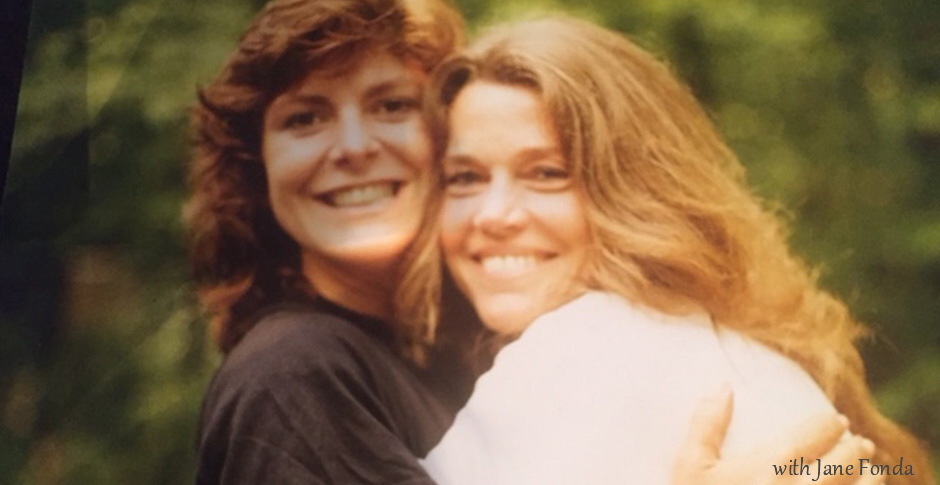
In Chicago you worked on set as stand- in for lead actress. What does that exactly mean and who did you stood in for? We don´t talk about stunt or intimate scene, do we?
I just talked about this in the above paragraph, but I would like to expand the stand- in part of my career. Being a stand-in is a wonderful way to experience and understand filmmaking. The stand-in should be similar height, weight, hair, and skin coloring to that of the actor that you are standing if for, in order to set the lighting and camera angles prior to shooting the scene. The director would tell me where to walk or stand, in order to set up and block the shots exactly how the actor will do it. I would then be told to step out of the scene, (unfortunately!), and the (real) actor would step in to do her thing and they would shoot the scene. So, it was a great experience to learn about timing, lighting and camera moves.
While doing this, you also got some parts in films, so are you self-made actress or you did study some art school and it came- in handy in this situation and it then snowballed?
Yes, when working as a stand-in, the director and assistant director were aware that I was an actress, so they would tell me to put on specific wardrobe and give me a part on the spot, it was great!
I would say that I am half self-taught and the other half taking a variety of classes. I studied voice for singing, improvisational acting at the legendary Second City and a few traditional acting classes along the way.
Stand-ins were great experience to learn about timing, lighting and camera moves
Then you got a job in advertising company in Chicago dealing with film production. What exactly have you done in this position? Say, manufacturer of watches told you he has 500 000 dollars and wants product placement in a movie and you called productions and asked them if they are interested?
I have not done a lot of product placement, but I can easily do that. And, I did not work for an advertising agency in Chicago per say, but I worked independently as a ‘Rep‘ (they call it), representing a variety of directors, production companies, etc. and servicing advertising agencies when they are in need of production and post production for their broadcast, social media, print and radio campaigns. I still do this because I have the contacts, it is lucrative, and I enjoy it.
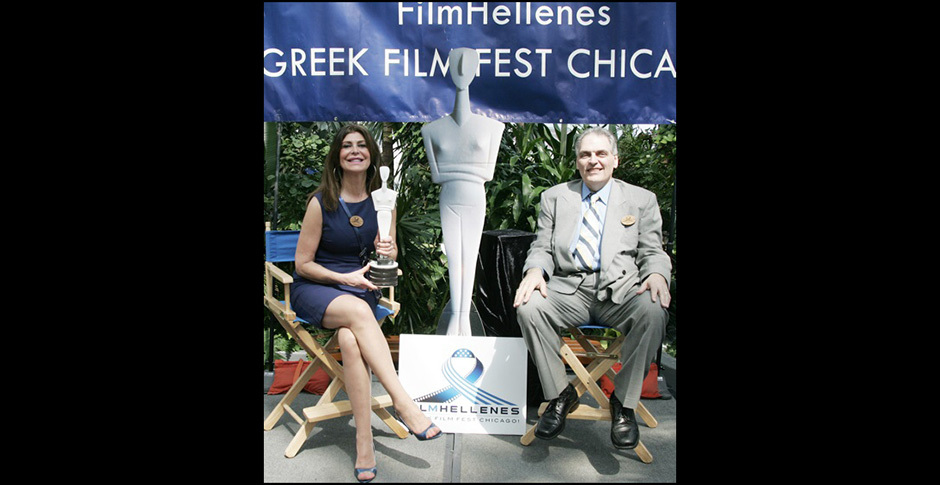
This helped you to accumulate contacts to directors and other artists and you established your own agency. How many employees do you have and what exactly does your agency do for clients? How many of them do you have in your stable and if you make a deal for them, you get 10 % so if they don´t earn, neither do you?
Over the years I have created many relationships with a variety of talent based nationally and internationally. Right now, I do not have these individuals and companies under contract, they are all hand shake, project to project relationships. I prefer this so that neither of us are pressured or obligated to bring in work, it is simply a win-win situation for everyone when I get them work and no pressure when I do not get them work!... We trust each other and we enjoy the collaboration versus feeling boxed into one another. I feel that the relationships flow better that way. And regarding my fees, they vary depending on the budgets and the type of project.
Was it easier to start up your business in Chicago and as well -run outfit, penetrate to Hollywood rather than start in Hollywood or New York from scratch? Is competition hard but fair and the best offer wins, or does it use dirty tricks, bribery, sex to get the deal since money is what it´s all about and it or survival of the fittest?
Being in Chicago I was a big fish in a smaller pond, and now being based in Los Angeles I am swimming with the sharks! …It was easier being the bigger fish in Chicago, and Chicago is a big advertising town. But, in order to pitch and sell my feature films and television series, Los Angeles is a very good place to be.
I did come out to LA many years ago pursuing my acting career, and yes, I felt the pressure of everyone needing to be more beautiful and talented then the other, and there was a bit of the ‘casting couch ‘cliché going on. I am proud to say that I did not sleep my way to the top, so I did not get there quickly. I had to use my brain and experience, so the success took longer. I still do business with my Midwest advertising contacts, and I love working with them. But for long form films and television, most of the ‘deals ‘are being done in LA, and I found that to be taken seriously in the industry it is best to be here. As the saying goes ‘When in Rome do as the Romans do‘, and same to be said for the film business being in California. And regarding survival of the fittest, that is definitely going on out here. Until you hit a big, recognizable, hot project, you are pretty much an outsider ‘wanna-be‘, and there are many of those out here unfortunately struggling to make it. So, until you are in that big door, you are out!
Right now, I do not have these individuals and companies under contract, they are all hand shake, project to project relationships
Did you try to break into Big league in Hollywood or never bothered with it since it´s closed shop for outsiders and they make crap films, reboots, sequels but you are after REALLY good stories which may not earn millions but are about something meaningful?
I am currently breaking my way into the ‘Big League of Hollywood’ as we speak. I have been (officially) based here now 4 years, and I have made wonderful contacts with major production companies, producers, writers, studios, and the streamers. And I am very grateful that they are paying attention to me, who I am, and what I have to offer. I only work on projects and IP’s (aka Intellectual Properties), that I like, and I believe in. And I have a large slate of them that I would love to see get made for the big and/or small screens. It is interesting, when I read a book or a screenplay, I see it as if it is already made. I love it! I am sure that as soon as I have one or two big hits, the phone will be ringing, and the studios will want to know what else I have. I am looking forward to that happening sometime soon! …
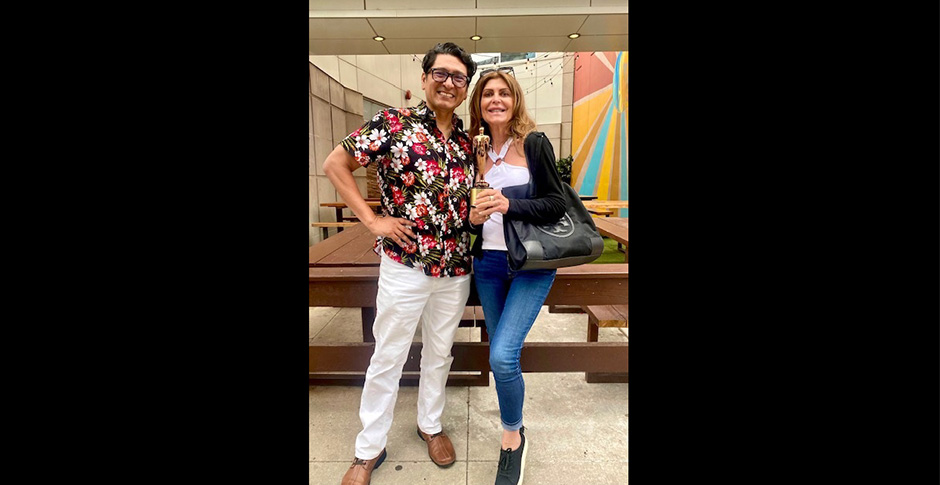
You own rights to many screenplays, books and stories. Does it mean that you read a lot on book market and try to see or sniff good topics for film, then pay say 10 000 dollars to author and buy out the rights and then pitch them to studios so you may make money on selling them or lose money if you don´t?
Do you prefer really good story even if it´s not that highly commercially viable or anything that can sell well and gain you money which you can invest further and gain you more independence and freedom?
I pretty much do my own thing and as mentioned I only sell and pitch what I like. So, I suppose I will call myself more of an individual trendsetter then a safe follower. I am an artist and a creative producer. And I do not pay ‘the big bucks‘ to option IP’s. I generally write up Shopping Agreements with the owners of the IP’s and I will then work out my deal and their deal with whomever buys it. So, there are no upfront expensive retainers on my end, it is my time which I think is very valuable.
This is not to say that someday I will have to pay a large fee to option something, but as of now I am not doing that. Is it more difficult for you as a producer and story owner now, after all current LGBT and politically “correct rules” imposed, which restrict artistic freedom? What do you think about them, welcome back in 50´s?
I like the fact that now there is diversity in Hollywood, and I think that prior to now it was unnaturally one dimensional of being straightlaced, white, mid America. I am currently working with executive producer Arny Granat and the brilliant writer Stephanie Sanditz on an exciting screenplay, and we are very much aware of being careful. And in advertising, it is also interesting to see the need for diversity. I was contacted recently for Nissan commercial for LGBTQ+ families, so the subject is definitely being addressed in all media.
It is interesting, when I read a book or a screenplay, I see it as if it is already made. I love it!
Could you tell us which film was your biggest success, which internationally known director did you work with and which is the biggest fish in your stable?
Twenty years ago, I attached the brilliant Martin Scorsese as executive producer to a film called Brides, (Nyfes), with the Greek director Pantelis Voulgaris. The film did well, but it was not a huge box office block buster. I was also a producer on the Russian film ‘Brat
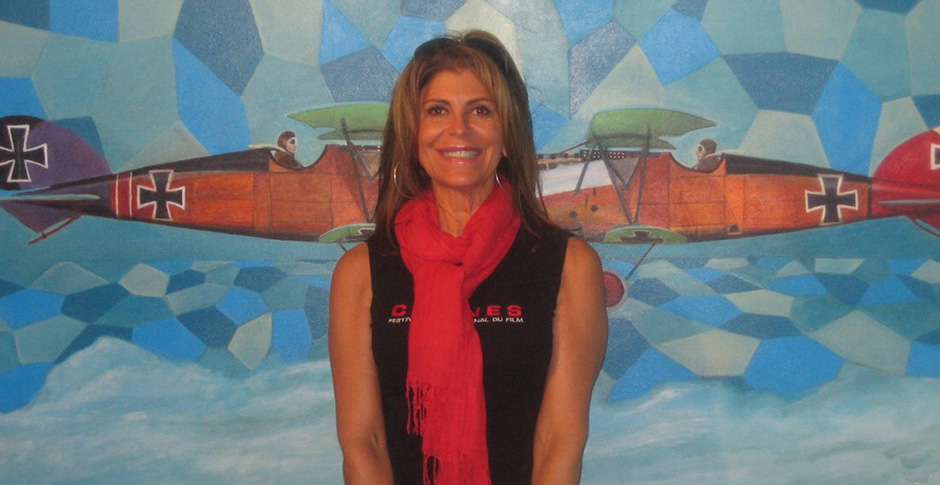
When we tried to approach some actor´s agents for interview, hence promotion, 99 % of them didn´t bother to even reply our email. Is it normal practice or arrogant behaviour by them which is a norm in film industry?
Yes, unfortunately the big agents are very guarded and stand off-ish unless you are a big name. Then they will be aggressively contacting you! I on the other hand always acknowledge everyone, because I do not think that anyone is better or more important than the other. Yes, some people are more successful than others, but we all have our time and place to shine. And we never know who will end up being someone important to know, so it’s best to be nice to everyone now.
Do you prefer and like small, down to Earth crew or director with tight budget but right attitude and good story to big companies, big studios and distant, but wealthy and influential people?
I love and appreciate talent, so whether the project is a small budget short film, or a big elaborate feature I feel that brilliance is brilliance. Whether it is shown and told in 30 seconds or 2 hours, if it’s good it’s good!
Thank you very much.
Photos: Val Gobos


